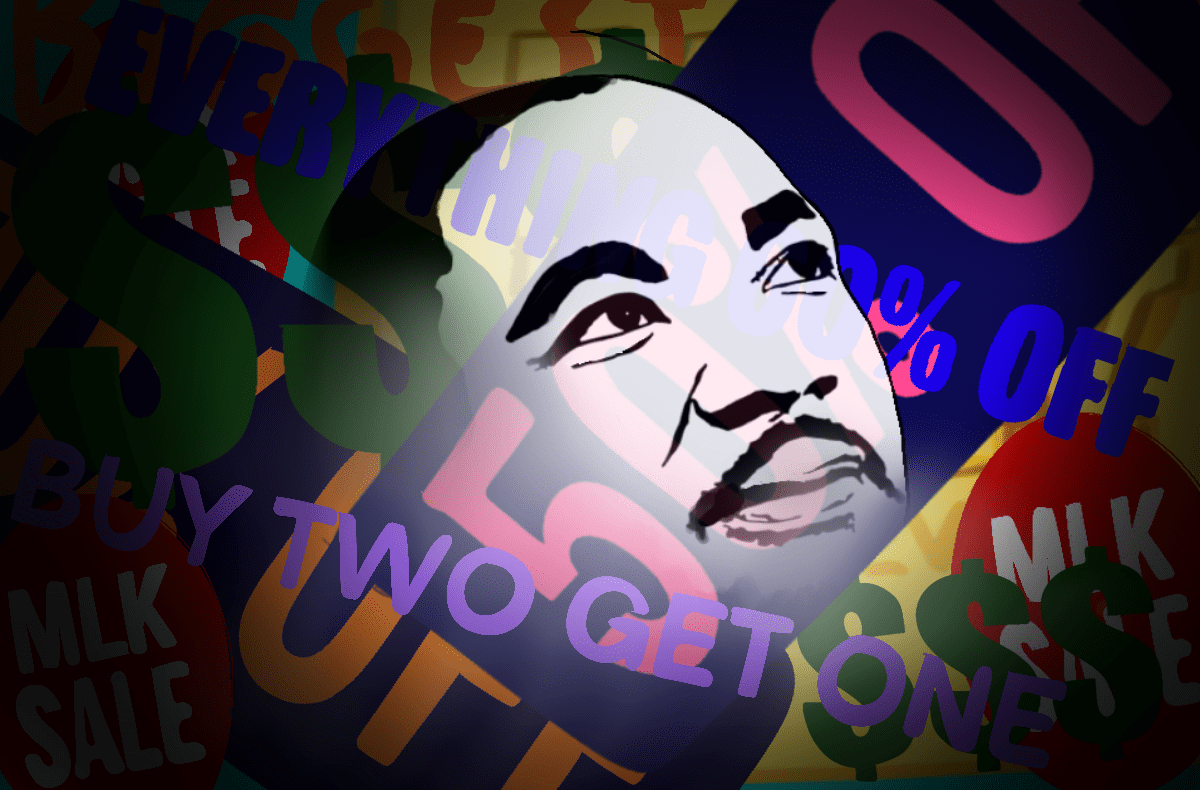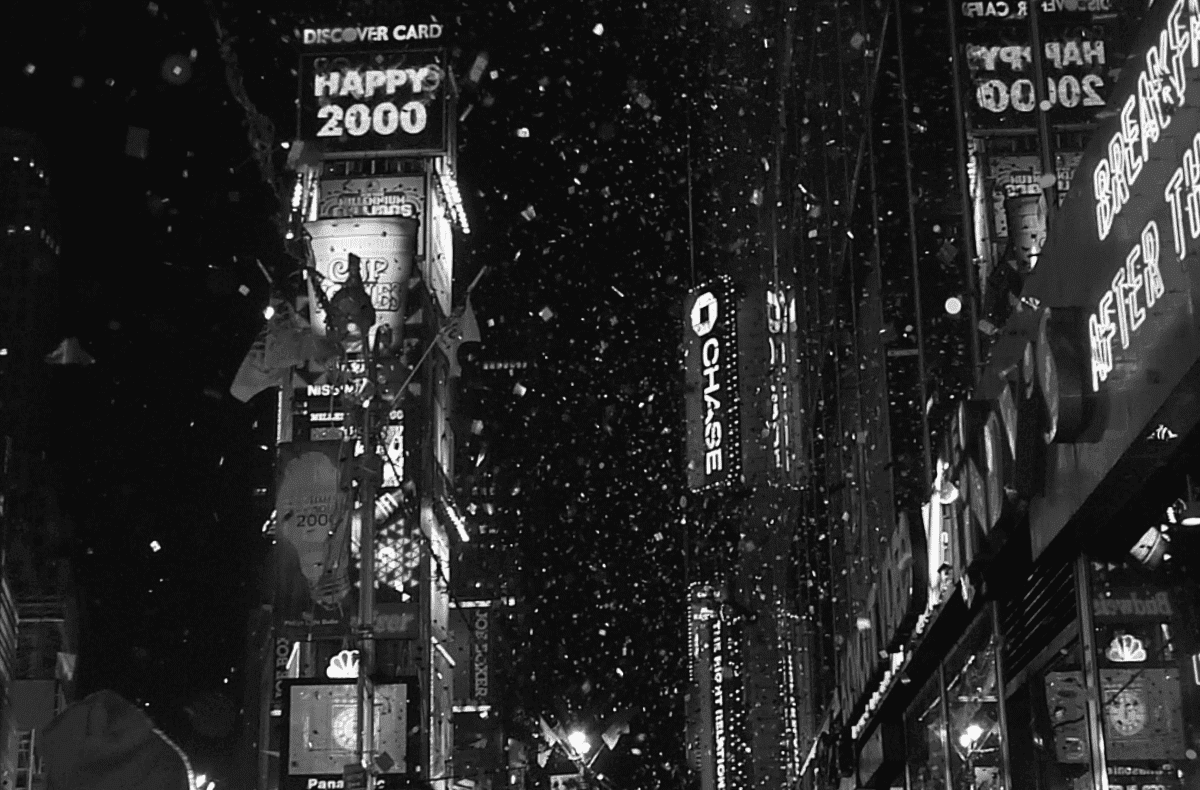
Illustration by Nikki Muller
I was 237% committed to being an actor. At 26 years old, my raison d’etre was my career. When meeting someone, I made sure to let ’em know what I did in about 20 seconds.
“Nice to meet you.”
“You, too. I’m an actor!”
I was delusional. I was 5 foot 10 inches, weighed 142 pounds and could barely afford razor blades.
I had done a few Off-Off Broadway shows, one of which wound up with another actor in an apoplectic, red-faced rage. My job in the play was to punch him, and we had practiced a good amount of stage combat, so I never really gut busted him in the solar plexus. But his character’s reactions bled over after the show.
“You don’t know what the hell you’re doing out there!”
Sadly, I believed him. At the time, I didn’t realize that insecurities are a natural part of a performer’s life. Hell, they’re a part of everyone’s life. So I thought I needed to find a teacher who would endow me with a healthy dose of much-needed confidence.
Enter Donnie: a die-hard method acting guru.
“We will work on building a craft. You’ll get that confidence,” he said.
Five-foot-seven, 40 years old with graying hair and on the chubby side, Donnie possessed a warm, endearing manner. At the beginning of our relationship, my skills improved. I had been unable to conjure up images to use in my work, but he taught me how to do that via “sense memory.”
“Buy some yogurt. Explore it with your sense of taste. Lick it with your lips. Caress it with your tongue. Do this every day. Then bring it to class next week. Without the yogurt, of course.”
After eating a bathtub full of Dannon Plain over the next seven days, I entered the studio the following week, plopped down on the dark floor. After I’d pretended to eat yogurt for half an hour, Donnie beamed.
“That was plain yogurt, right?”
“Uh, yeah.”
“Good job!”
By learning how to create imaginary lemons, dairy products, and people, I was finally able to gain access to my emotions in a way I had been previously unable to do.
As I became a better actor, Donnie could be quite encouraging.
“Great job!”
“Excellent work in that staged reading!”
But, eventually, a darkness began to emerge from him, a shadow that haunted and terrorized his students.
One week, he would say, “Nice stuff, man! I really believed you!”
The next: “You’re an okay actor with a decent sense of craft. You can get to 75 or 80 percent and with a good director, maybe 85.”
God knows what 85 percent was. God knows what any percent was! Who ever talks about acting in terms of percentages? What was this, the floor of the New York Stock Exchange?
As Donnie got darker, he insisted on doing more exercises, which numbered about eight billion… one for each citizen on the planet.
They were designed to open up your instrument and release blocked feelings.
“Do a dump!” he’d command.
A dump was where you took all of the negative emotions that built up over the course of the day and spewed them out in a thunderous, ear-splitting cacophony of fury. The class morphed into 12 Godzillas downing Tokyo in an avalanche of flames.
There’s Faith Grayland, lying prostrate on the dust-ridden floor. Moaning about whatever trauma she had, her body writhing.
“Scrawwww! Scrawww! Goooooo! Scrawwwwwww!”
There’s Amy. Cute, brunette, no socks with her Birkenstocks, growling and snarling, an adorable Mount Vesuvius.
“Arrrrgoom! OOM!!!! HAH HAH HAH BROOMMMMM!!!!!”
And there’s my best friend, Bob, balding and handsome with a five o’clock shadow, mumbling under his breath loud enough for only me to hear.
“Dump this, moron. Fuckin’ feelings. Stupid effin’ exercise. Feelings…Goddamn feelings.”
Donnie would attempt to explain his technique and the more he elucidated, the less sense he made.
“What’s the character in the play feeling? Then ask yourself, ‘How do I feel? Oh! My right knee has tension. How do I feel? I’m sad from my parents’ divorce 20 years ago. How do I feel? And if it’s not what the character is experiencing, expel those feelings in a cascade of GIBBERISH.”
And his star student, Eden, would get up in front of the class and demonstrate, her body contorting as she spewed out gibberish like a woman possessed.
“I’m confused,” I’d say.
“You’re creating confusion to keep from understanding what I’m talking about,” he’d reply. That left me even more confused.
As the months wore on, Donnie’s shadow side became more prevalent. He only focused on what we were doing wrong.
Donnie’s favorite instrument workout was the Sensuality. For some reason I can’t fathom, he only asked attractive 19 to 28-year-old women with a Body Mass Index of 18.5 to do this.
“Rub your body. All over. Your torso, your legs, your breasts. Tell us how you feel. Stare into the entire class’s eyes. Otherwise, you won’t be able to do it in a scene. Eroticism is very important if you want to work in movies.”
And a blonde or brunette with cut, toned legs and an exposed crop-topped belly would fondle and nuzzle her frame, gaze into the class’s eyes until she damn near had an orgasm.
How this allowed you to perform Hamlet or Moon for the Misbegotten escaped me.
The final chapter of my “work” with Donnie came shortly thereafter.
Katherine, a kindhearted woman of about 34 with frizzy curly blonde hair, did an exercise. She ended up resembling a character out of the movie Saw, where the protagonist, who is chained to a floor in a dungeon, has to cut off his own leg to save his family.
I winced as Donnie skewered into Katherine’s deepest pain, the kind of anguish you unravel during your 12th year of therapy.
“Tell me what that pain is!”
“I can’t talk about it.”
“Fine. Don’t tell me. Visualize it.”
As she did, a waterfall of tears cascaded down her face.
“It hurts! It huuuuuuuurts! It huuuuuuurrrrrrrrtttssss!”
Her eyes and face turned beet red. Her torso quivered. I grimaced. I wanted to do something, but I felt helpless.
“THIS is what you have to do to be able to do the work,” said Donnie.
She sat down in her hard-backed seat, her tear-streaked face hidden in her hands.
I glanced over at her, distressed. I tried to make eye contact to let her know she had a friend. No luck.
As I left class and headed home, I thought, “I wonder when he’ll be coming for me.”
It didn’t take long.
The next week, I was face-to-face with Pat, a scrawny waif whose hair was ironed into the shape of a pyramid. I stuttered and mumbled something I can’t even remember.
Pat pointed her gnarled finger at me.
“You’re lying.”
“No I’m not.”
“Yes, you are. I’m not colluding with you.”
My boundaries were being viciously violated. And Pat was smirking, getting sadistic pleasure out of this.
Pat kept poking and prodding, looking for any kind of vulnerability she could uncover. Tears welled up from God-knows-where. My stomach ached as I wept.
Donnie said, “Good work. You had an emotional experience.”
When class ended, I picked up my stuff and went home. Lying in my twin bed on the frame that cost $25.62 at a flea market on West 72nd Street, I made a decision.
Don’t go back there.
I didn’t even give him a call to let him know I quit.
What made me stay with Donnie for two arduous years? I’ve asked myself that question many times. I had a choice to leave this abusive, destructive relationship. The answer I keep coming back to is that I wanted Donnie’s approval, which he rarely, if ever, gave. Except maybe for Dannon Plain Yogurt, the Sense Memory version.
A few weeks later, I was roaming Barnes & Noble. I felt like Eeyore from Winnie-the-Pooh—a gray, joyless donkey. I spied a copy of The Artist’s Way by Julia Cameron on a third-floor shelf. A chapter heading: Recovering a Sense of Safety.
That was timely. I devoured vignettes about restoring your creativity. The dark Eeyore clouds made way for a bit of sun.
After doing real exercises—writing in the morning, practicing gratitude, going for walks and I dunno…playing with my cat and having a brewsky, I was able to unlock the love of acting that had been stifled for the past two years by Donnie the Hun.
And an epiphany hit me: Donnie’s mean-spiritedness hid a fragile, sad, insecure man who never faced his pain, his broken dreams. I felt empathy for him, which freed me from my seething resentment.
Because before that, whenever I thought of his round face, I’d want to spit ferociously into the nearest sewer.
I forgave him. But I sure as hell didn’t forget.



